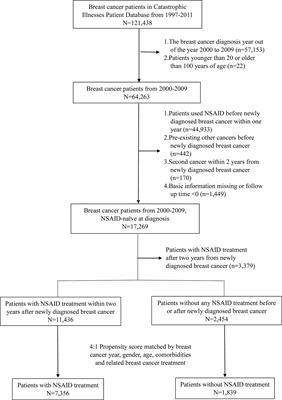ORIGINAL RESEARCH
Published on 24 Nov 2021
Nonsteroidal Anti-Inflammatory Drugs Reduce Second Cancer Risk in Patients With Breast Cancer: A Nationwide Population-Based Propensity Score-Matched Cohort Study in Taiwan

doi 10.3389/fonc.2021.756143
- 3,084 views
- 2 citations


